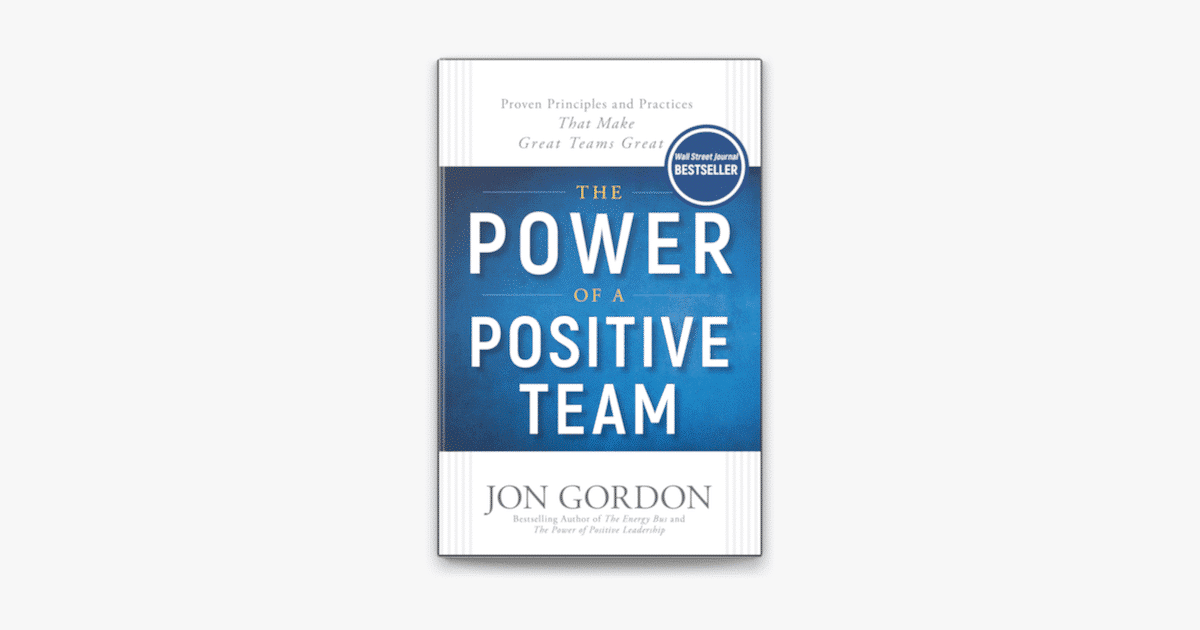While preparing for a Positive Change project to help integrate several marketing teams into one team, I read a great book by Jon Gordon, The Power of a Positive Team: Proven Principles and Practices that Make Great Teams Great.
Jon presents clear and convincing cases that most, if not all, great teams are founded on a positive culture, driven by a shared vision and purpose, inspiring them to:
- Communicate openly and honestly, which enables them to
- Build strong connections, which drives them to
- Become genuinely committed to the team for which they
- Care deeply (placing we before me).
This sequence can also be found in our Customer Lifecycle, thereby suggesting that the same sequence also applies to building great customer relationships:
- Marketing = Communication
- Sales = Connection
- Service = Commitment
- Success = Care

I encourage you to read the book. Meanwhile, here are a few of Jon’s quotes:
- “Your most important job as a team is to create a culture—and not just any culture. You must create a positive culture that energizes and encourages each other, fosters connected relationships and great teamwork, empowers and enables your team to learn and grow, and provides an opportunity for you to do your best work.”
- “Culture is not static; it’s dynamic. You can change it by what you say. You can elevate it by what you think. You can improve it by what you share. You can transform it by what you do. You can be a positive team that creates a positive culture right now.”
- “Culture isn’t just one thing. It’s everything. Culture drives expectations and beliefs. Expectations and beliefs drive behaviors. Behaviors drive habits. And habits create the future.”
- “There’s a reason why all great teams have a great culture. It’s because culture is the living and breathing essence of what a team believes, values, and does. Team culture is the written and unwritten rules that say how a team communicates, connects, thinks, works, and acts.”
- “Culture is not static; it’s dynamic. You can change it by what you say. You can elevate it by what you think. You can improve it by what you share. You can transform it by what you do. You can be a positive team that creates a positive culture right now.”
- “Too many teams focus on the fruit of the tree. They focus on the outcome, the numbers, the stock price, the test scores, the profit, and the wins and losses. They focus on the fruit and ignore the root (their culture, people, relationships, and process). They think it’s the numbers that matter most.”
- “You can have the greatest vision and purpose, but you must be connected and united in order to make it come to fruition.”
- “Everyone wants to have a committed team, but you will never have commitment without connection. Connection is what leads to commitment. This is why a connection is so important. It strengthens trust and creates a bond that leads to commitment.”
- “If you love your team, you won’t give up on them. The more connected you are, the more committed you will be. If you are committed to each other, you will fight for each other, not with each other. You will move forward together through failure, adversity, and challenges.”
- “The team at Apple cared about the work they did and the products they created and, in turn, their customers cared about them. Their care created products that changed the world and left a legacy.”
- “It’s easy when the vision is clear and the commitment has been made and positive results are coming back. But when things aren’t going well and issues arise, that is when great teams come together. Through connected relationships, they commit to their vision and purpose and take care of each other and execute together. Great teams are made when they are forged in the fire of conflict, and through confrontation, they come out stronger.”
Author
-
Edwin Korver is a polymath celebrated for his mastery of systems thinking and integral philosophy, particularly in intricate business transformations. His company, CROSS/SILO, embodies his unwavering belief in the interdependence of stakeholders and the pivotal role of value creation in fostering growth, complemented by the power of storytelling to convey that value. Edwin pioneered the RoundMap®, an all-encompassing business framework. He envisions a future where business harmonizes profit with compassion, common sense, and EQuitability, a vision he explores further in his forthcoming book, "Leading from the Whole."
View all posts Creator of RoundMap® | CEO, CROSS-SILO.COM





